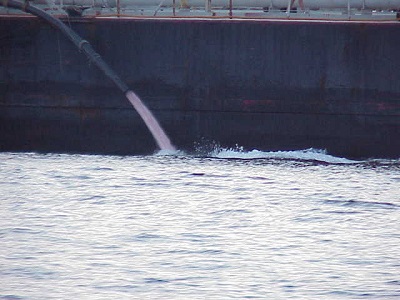MPRSA Emergency Permits
The EPA may issue emergency permits under the Marine Protection, Research and Sanctuaries Act only in emergency situations where there is an unacceptable risk to human health and no other feasible solution than to release the material in the ocean. “Emergency” refers to situations requiring action with a marked sense of urgency but is not limited to circumstances requiring immediate action.
Under the MPRSA and the EPA’s regulations for implementing the MPRSA (40 CFR 220.3(c)), emergency permits may not be issued for the following materials:
- high-level radioactive wastes;
- materials produced or used for radiological, chemical or biological warfare;
- materials insufficiently described to permit application of the environmental impact criteria of 40 CFR 227 Subpart B; or
- persistent inert synthetic or natural materials which may float or remain in suspension in the ocean in such a manner that they may interfere materially with fishing, navigation or other legitimate uses of the ocean.
Ocean site locations for activities permitted under an emergency permit are specified as a permit condition and are based on the EPA’s evaluation of the characteristics of the material and the safest means for its release. The EPA endeavors to consider the general and specific marine protection criteria (40 CFR 228.5 and 228.6) in identifying dump site alternatives, when possible.
Notwithstanding the MPRSA prohibition on the ocean dumping of “industrial waste”, the EPA may issue an emergency permit for industrial waste if the EPA Administrator determines that an emergency has been demonstrated to exist which poses an unacceptable risk relating to human health and admits of no other feasible solution.
Examples of Emergency Permits

In 2003, the EPA issued an MPRSA emergency permit to allow treated wastewater from the abandoned Piney Point phosphate fertilizer plant in Manatee County, Florida, to be released into waters of the Gulf of America. The wastewater holding ponds at the former plant were full. The seasonal likelihood of a heavy weather event, such as a major rainfall resulting from tropical storms, presented substantial concern of breach from the dikes creating the ponds. A breach from the dikes could have resulted in a potentially substantial release of acidic wastewater across residential areas and into Tampa Bay, an inland bay on the Gulf. The release of such a large volume of wastewater would have posed an unacceptable risk to human health and the urgency of the situation admitted no other feasible solution.
In 2007, the EPA issued an MPRSA emergency permit to the U.S. Coast Guard (USCG) for the ocean disposal of a gray whale carcass. The gray whale had drifted ashore in a residential area and posed an unacceptable risk to human health as well as a navigation hazard. USCG towed the carcass to an EPA-determined location far from shore, weighed it down and sunk it deep in the ocean to prevent floatation and allow for gradual disintegration.
On August 18, 2016, the EPA’s Region 6 office issued an MPRSA emergency permit to Anglo-Eastern Ship Management Ltd. and Federal Oceans Ltd. to transport approximately 350 metric tons of Distiller’s Dried Grains with Solubles from waters offshore of Morocco for disposal on the high seas in the waters of the Atlantic Ocean. Note that the emergency permit was not used because the DDGS was brought to shore in Morocco for land disposal.
On February 27, 2023, EPA issued an MPRSA emergency permit to Spring Valley Shipping Management Pte. Ltd. to transport approximately 185 metric tons of long grain milled rice from waters offshore of South Africa for disposal in the high seas of the Atlantic Ocean.
Emergencies
Emergencies to safeguard life at sea
An MPRSA permit is not required for the disposition of a material from a vessel or aircraft in an emergency to safeguard life at sea to the extent that the person owning or operating such vessel or aircraft files timely reports required by 40 CFR 224.2(b).
